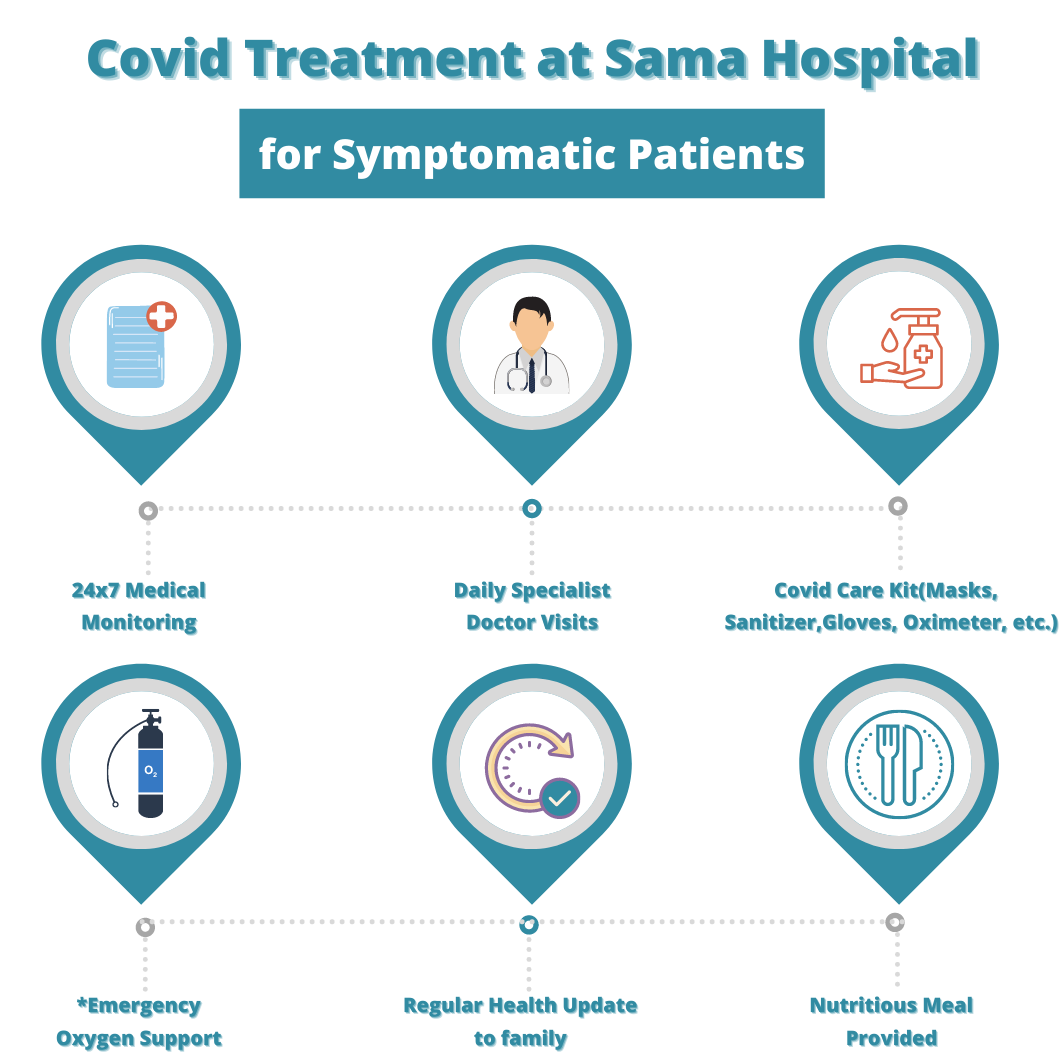Sama Hospital Covid-19 Healthcare
We’re located in the center of South Delhi, opposite the Siri Fort Forest, one of the city’s largest green belts.
About COVID-19
COVID-19 is a highly contagious virus that mainly attacks the lungs. It is transmitted through droplets created from sneezing and coughing from those infected. The virus enters the body via the nose, mouth, and eyes. After acute COVID-19 illness, recovered patients may continue to report a wide variety of signs and symptoms including fatigue, body ache, cough, sore throat, difficulty in breathing, etc. A holistic approach is required for follow-up care and the well-being of all post-COVID recovering patients.
Sama Post Covid Recovery Clinic
Multidisciplinary Clinic Offering Specialized Treatment for Patients Recovering from COVID 19

Book a Test
FAQs
- Continuous cough
- Sputum production
- Fever
- Loss of appetite/taste/smell
- Fatigue
- Shortness of breath
- Muscle aches
Some people may require hospitalization to treat these symptoms.
Monitor your symptoms regularly. if you get one of the following, reach out to a doctor/ medical assistance immediately:
- Worsening shortness of breath
- Chest pain
- A new or returning fever/high-grade fever
- Confusion, the inability to eat/drink
- Worsening ability to concentrate
It might get more difficult to do the things you are normally able to do, such as housework, having a wash, getting dressed, or walking up and down the stairs. Most symptoms resolve on their own with time. Others require patience and effort from your side. Complete recovery may take a longer time.
You can resume your work routine after:
- At least 17 days since you first experienced symptoms
- You have recovered from symptoms and regained energy levels
Someone who has completed quarantine or has been released from isolation is not in the infective period and does not pose a risk of infection to other people and does not need to be tested again.
Most people who are infected with the COVID-19 virus, whether or not they have symptoms, produce antibodies (proteins that fight infections) and fighter cells. For those recovered, the chances of reinfection appear to be very low in the first three months after the initial infection. And it’s possible that even after that, the low levels of antibodies may be able to protect against reinfection.
Yes, infected people can transmit the virus even when they don’t have symptoms. This is why it is important that all people who are infected are identified by testing, isolated, and, depending on the severity of their disease, receive medical care. These measures break the chain of transmission.
Yes, you can. Recent studies indicate that COVID can spread through tiny droplets that remain suspended in the air for long. In closed spaces with inadequate ventilation, a COVID positive person can leave such tiny droplets hanging in the air which can be circulated by the air-conditioning systems. Hence, wearing a mask at all times is important.
- A temperature between 24-30 degrees ‘ C should be maintained while operating ACs at home.
- While a relative humidity level of 40% to 70% is considered to be the most suitable as it decreases problems from pathogens. Recirculation of cool air by room air conditioners must be accompanied by outdoor air intake through slightly open windows and exhaust by natural exfiltration.
- Centralized air conditioning should be avoided if infected and noninfected persons live in the same house. Individual air conditioning units should be used in separate rooms.
- Yes, you can. Evaporative coolers must draw air from outside to ensure good ventilation.
- Evaporative cooler tanks must be kept clean and disinfected and the water drained and refilled frequently.
- Windows must be kept open to release humid air.
- Portable evaporative coolers that do not draw outdoor air are not recommended, since their cooling reduces with humidity rising inside the space.
